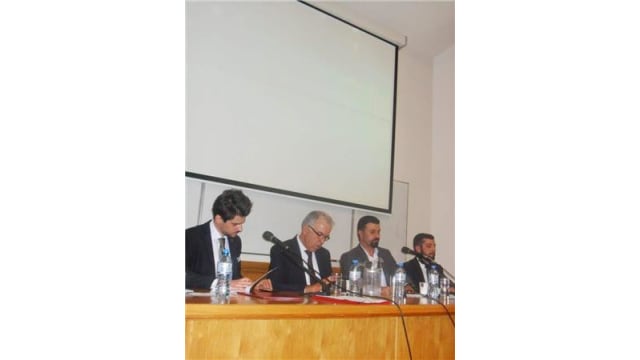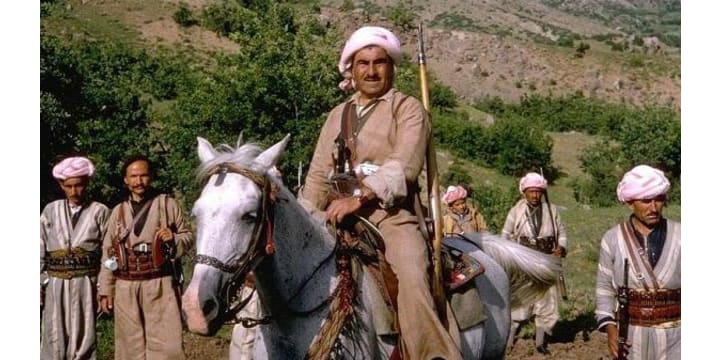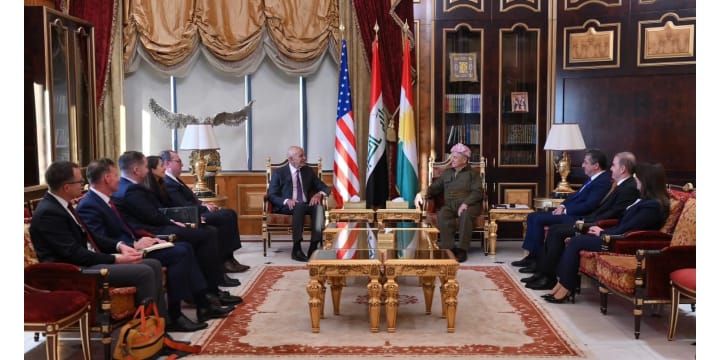
Role of Kurds in the Middle East was Hoshyar Siwaily's topic at the 3rd International conference in Warsaw, Poland
Failure of the Federal Government of Iraq to respect the constitution is the source of all tensions. This became clear when the deadline for implementing Article 140 expired in December 2007 without even completing the first of the three stages (Normalisation, Census and Referendum) the article stipulates. The second serious blow to the ties between the two sides came when the Federal House of Representative failed to discuss the draft Hydrocarbon Law approved and submitted by the Council of Ministers in February 2007.
The British created Iraq as a modern state after the 1st World war as it implemented the Sykes-Picot agreement of 1916 between Britain and France. Today’s Iraqi Kurdistan was forcefully included in this new state where their national and cultural rights were suppressed for more than 100 years. For the first time since Iraq’s inception and the partition of the Kurdish people, Iraqi Kurdistan conducted a referendum on 25th September 2017 to express their will on independence, which has been denied for too long. Although 93% of the People rejected their inclusion in the Iraqi state and voted yes for independence, the free World, the world that introduced the idea of modern nation-state and self-determination to the world, opposed this free will and stood against the legitimate demands of the people of Kurdistan as it once did hundred years ago.
The Iraqi government, encouraged by the aggressive position of the neighbouring countries and lack of international support for the referendum, responded with bullets and violence with the aim of unilaterally re-establishing control over most of the disputed territories, where once Kurdish Peshmerga and Iraqi forces protected together. The Peshmerga either liberated these areas from ISIS or moved in to stop ISIS to occupy them. As a result of a secret agreement between some elements of PUK and the leaders of PMF, the majority of the combat units of Peshmerga forces operational in Kirkuk front and aligned with PUK, withdrew in most of these areas. In order to prevent clashes between the Peshmerga force and the destruction of urban cities the other units aligned with KDP decided to withdraw.
However, when the Iranian backed Hashed Al-Shaabi (PMF) tried to make further advances into the territories of Kurdistan Region, President Masoud Barzani ordered the Peshmerga forces to stop their aggression. On 20th and 26 October serious fighting broke out in the governorates of Erbil and Duhok that stopped the PMF from making further advances. The military response by the Peshmerga coupled with political pressure from the US, EU and Russia paved the way for seeking peaceful rather than military solutions to the outstanding issues.
Since then both Baghdad and Erbil have succeeded in making some modest progress, in particular reopening the airports and the border crossings between KR and Iran. Although the Iraqi lawmakers passed the budget law despite serious objections from KRG, the Iraqi government has agreed to send IQD 317 billion per month to the KRG which covers a portion of the salary of the Region’s employees. Although this does not suffice KRG’s budgetary requirements, we recognise that this is a step in the right direction and can be improved after the formation of the next Federal government.
Problems between the KRG and Iraq are not solely financial, however. The unwillingness of the Federal Government to respect the constitution is the source of all the tensions. This became clear when the deadline for implementing Article 140 expired in December 2007 without even completing the first of the three stages (Normalisation, Census and Referendum) the article stipulates. The second serious blow to the ties between the two sides came when the Federal House of Representative failed to discuss the draft Hydrocarbon Law approved and submitted by the Council of Ministers in February 2007, an outright violation of Article 112 of the constitution. Tensions between and Erbil grew further when the former PM Nuri Al-Maliki stopped budget transfers to Kurdistan Region in February 2014 and did not provide any military nor financial assistance to KRG when ISIS attacked Kurdistan in August of the same year. The Referendum was initially planned to be held in 2014 but it was postponed due to the ISIS attack. By the time the Kurdish leadership decided on 7 June 2017 to conduct the referendum on 25 September, 55 articles out of the 144 articles of the constitution were not implemented and no credible alternative to holding the referendum was put forward by the Iraqi Government.
The failure of the successive Federal Governments since 2005 to implement the constitution undermined the optimism and trust, which was courageously acquired during the drafting process of the constitution. Lack of any credible effort by the political elites in Baghdad to alleviate the mistrust and fears of Kurdistan Region left no option to the Region’s government and political parties but to conduct a referendum.
The referendum itself was a huge success and was a clear manifestation of the will of the People of Kurdistan. The political leadership of Kurdistan were determined to initiate peaceful talks with Baghdad about the outcome, but the Federal Government rejected talks and demanded an outright abolition of the results and surrendering the will of the Kurdish people. As a gesture of good will to obtain peace, the KRG decided on 25 October to freeze the results and adhere to the Iraqi Federal Court’s ruling.
It is true that the events of 16 October, lack of international support for the referendum and the ruling by the Federal Supreme court compelled KRG to freeze the outcome of the referendum, but KDP has never regretted its decision to hold it and has always viewed it as a legitimate right of the People of Kurdistan.
Yet, in the meantime, KDP fully supports KRG to reach an amicable agreement with the Federal Government to resolve all the disputes in a peaceful way and in accordance with the constitution. The Federal Government has, so far, not shown any willingness to start a serious dialogue with Kurdistan Region. Under the current political climate in Iraq, meaningful negotiations have to wait till the formation of the next Federal Government. Fragmented and competing alliances, in addition to foreign interference will make it difficult for Iraq to form a government in the very immediate future. By the time the new Federal Government is formed, Kurdistan Region will be holding its own elections in late September. The real negotiations, therefore, between Baghdad and Erbil will not start before the two new governments are formed and fully operational.
The military defeat of ISIS and the events after the referendum have created a historical opportunity to build a new and inclusive government in Iraq that seeks true partnership between all the ethno-religious components of the Iraqi society. One of the top priorities for both KRG and the Federal Government is to start a meaningful dialogue in order to implement the constitution in its entirety. Both Baghdad and Erbil must learn from the past and reconcile their differences. History has proved that there will not be a viable and lasting peace without fully recognising the legitimate demands and rights of the People of Kurdistan. The most crucial issues which have to be tackled in any future talks between Baghdad and Erbil should include the administration of the areas outside Kurdistan Region and an agreement on a road map to implement Article 140. Revenue sharing, budget allocation, finalising the Hydrocarbon law and the legal status of the Peshmerga forces within the framework of the Iraqi Security forces are among the issues, which have to be at the core of the agenda of any future negotiations.
Looking beyond the intra-Iraqi dynamics, we need to also mention the role of our neighbours. Turkey and the Islamic Republic of Iran are two important countries neighbouring Kurdistan Region. These two countries opposed the referendum and Iranian backed militias took an active part in re-taking Kirkuk and other disputed areas. KRG has to mend its relations with these two countries. It has made significant improvement since the referendum but more is needed in order to regain the relations we had prior to the referendum. Turkey, despite its strong opposition to the referendum, did not take any measures to hurt the Region’s economy. It kept the border open and did not humper the flow of oil from the Region to the international markets. There has been some progress in improving relations with Iran but any real improvement in diplomatic relations with Turkey has to wait until after the June presidential elections.
Even prior to the referendum and the events of 16 October 2017, Kurdistan Region was experiencing extraordinary tough times due to freezing of budget transfers from the Federal Government to Kurdistan, the ISIS war and the arrival of nearly two million Refugees and IDPs. When KRG decided to start exporting its own oil as alternative revenue to budget coming from Baghdad, oil prices dropped. The economy went through deep recession and the rapid growth the Region underwent during the previous years, came to a halt in 2014. Even the provision of basic services became a challenge for the Regional Government. The government had no option but to embark on an austerity programme including curbing the salaries of the public sector employees.
One of the biggest challenges the Regional Government faces is reforming the economy including diversification of the sources of revenue and reforming its governance and management of public finances. The Government has drafted a law that is being discussed by the Regional Parliament to address some of the issues related to managing public funds and retirement of public employees. Moreover, Deloitte and EY (two of the big four auditing firms) is independently auditing the region’s oil and gas production, exports and bonuses – this is a case in point of how serious the KRG is to entrench transparency and accountability to its governance. This is a first in the Middle East as historically the region has kept its financial books closed to institutions and the outside world. This is a step in the right direction and more concrete measures and reforms are to follow in order to meet the demands and expectations of our citizens.
Although tensions between the Kurdistan Region and Iraq were at an all time high in the tail-end of 2017, we genuinely believe we can turn a new chapter with Iraq. But this is on the absolute condition that Iraq implements the constitution. The implementation of the constitution not only sustains the federal order of the Iraqi state but also determines the future of our peoples.

